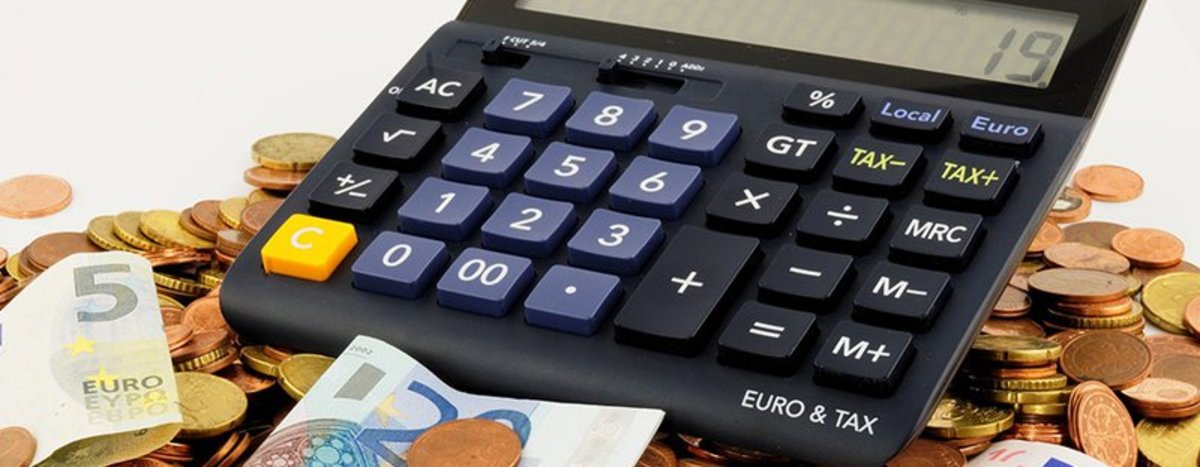
In what could be a landmark case for Bitcoin in the EU, the European Court of Justice (ECJ) has announced that it will make its decision on the VAT-status of virtual currency exchanges next Thursday. The verdict, which is the climax of an originally Swedish court dispute, could have far-reaching implications for bitcoin users and companies in all 28 EU-member states.
In essence, the ECJ will decide whether bitcoin exchanges should be subject to VAT (Value Added Tax). Specifically, as requested by the Swedish high court, the ECJ will answer two questions:
“Is Article 2(1) of the VAT Directive to be interpreted as meaning that transactions in the form of what has been designated as the exchange of virtual currency for traditional currency and vice versa, which is effected for consideration added by the supplier when the exchange rates are determined, constitute the supply of a service effected for consideration?”
And:
“If the answer to the first question is in the affirmative, is Article135(1) to be interpreted as meaning that the above mentioned exchange transactions are tax exempt?”
Speaking to Bitcoin Magazine , Dutch fiscalist for law firm Baker & McKenzie and VAT-expert Roger van de Berg explained what the implications of the court ruling will be. Van de Berg:
“Strictly speaking, the case is about bitcoin exchange services. It's not about bitcoin itself, it's not about bitcoin mining, it's not about paying with bitcoin, or anything else. The court will decide whether exchange services fall within the scope of VAT-based law – that's the first question. If the ECJ decides that bitcoin exchange services do in fact fall within this scope, the second question will answer whether a VAT exemption should apply.”
If the ECJ rules that a bitcoin exchange does fall within scope of VAT-based law, and also decides that a VAT exemption will not apply, it could mean two things. The most likely outcome is that bitcoin exchanges will be required to pay VAT over the spread; the difference in price of buying and selling bitcoin from which they profit. But another – less likely – outcome could be that the value of the sale itself is subject to VAT. Since VAT in different EU member states is anywhere between 15 and 27 percent – depending on the country – this would effectively mean that it would cost an additional 15 to 27 percent to purchase bitcoin.
But while the questions that are to be answered by the ECJ strictly speaking apply only to bitcoin exchangers, it is possible that the answers could have even more far-reaching implications as well.
“In order to answer the question regarding exchange services, the ECJ might reason that it first needs to assess what such an exchange is actually doing and how the underlying assets should be qualified,” Van de Berg explained. “As such, it might also investigate the VAT treatment of virtual currencies and thus decide whether or not bitcoin itself is subject to VAT. If that happens, we have a clear answer from the ECJ of where bitcoin stands for VAT purposes within the EU. This would then apply to all bitcoin-related activities, including mining, spending and more.”
Currently, different EU member states uphold their own VAT-laws regarding virtual currencies. Some charge VAT, others do not, and yet others have not taken in any official position so far. With the ruling next week, however, all national virtual currency-related VAT laws will be overruled by the ECJ, in effect creating a uniform fiscal policy for all of the EU. This decision will be binding to all EU member states, and can only be overturned if overruling law is made by the European Commission in Brussels.
In July of this year, the Advocate General of the ECJ, Juliane Kokott, urged the court not to apply VAT on bitcoin purchases. While Kokott acknowledged that bitcoin is not legal tender, she did argue that it is comparable to money. As such, Kokott believes it does not in itself add value to the economy (which VAT is meant to tax), and should for tax purposes be treated like foreign currencies instead. While the advice of its Advocate General is in no way binding, the Luxembourg-based ECJ does often follow it.
It would be very favorable for the European Bitcoin community if the ECJ does follow Kokott's reasoning, according to Van de Berg.
“If bitcoin is not taxable for VAT purposes, EU citizens can transact with each other much more freely,” Van de Berg explained. “It would put bitcoin on a level playing field with fiat currency in that respect. I think that's essential for the growth of Bitcoin. If, on the other hand, we're all going to have to tax each other every time we use bitcoin, that would put significant damper on adoption. And a non-taxable status would be much better from a compliance perspective as well. Having to keep track of all bitcoin payments for tax purposes would be a compliance nightmare.”
The particular questions are brought before the ECJ as part of a Swedish dispute. Specifically, it concerns David Hedqvist, who planned to operate a Swedish bitcoin brokerage on his website bitcoin.se back in 2012. Hedqvist asked the Swedish tax authority whether his business would be subject to VAT, and the tax authority in 2013 decided it was not. The Swedish tax office, however, disagreed, and believed that commission and fees should be subject to VAT. The case ended up at the Supreme Administrative Court in Sweden, which in turn decided to ask for a ruling from the ECJ on how to interpret the common EU VAT directive a year ago.
Thanks to David Hedqvist for providing details regarding the court case.










